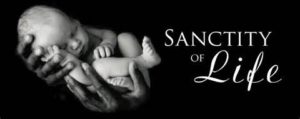Have you ever stopped to wonder why a new year begins on January 1st? It seems to be an arbitrary date, one that does not line up with any particular event like an equinox or solstice. Wouldn’t it make more sense to begin the new year on the date of the spring equinox, when day and night are the same length and it signifies the coming of a new season? In order to answer this question, we need to travel back in time to 45 BC and the time of Julius Caesar. At this point in time, the Roman calendar was lunar-based, which meant that it was constantly getting out of whack. The Roman pontifices were responsible for adjusting the calendar as needed, but they would often do so in a corrupt manner, ensuring political power for themselves or denying it to their opponents. When Julius Caesar came to power, he sought to update the Roman calendar in a lasting way, moving it to a solar-based calendar. This new Julian calendar took effect on January 1, 45 BC and remained in effect for about 1,600 years, until its shortcomings were corrected in our current Gregorian calendar.
So, why January 1st? The month of January was named after the Roman god Janus, who was the god of doors and gates. He was represented as the two-faced god, with one face looking backward into the past and one face looking forward into the future. Caesar thought it appropriate for the new year to begin during Janus’s month, with the symbolism of looking back into the past year and forward into the new.
 I think it is appropriate that the first month of the year, a month of new beginnings, is designated as Sanctity of Life month. Just as Caesar chose January for its symbolism, so we choose January to be representative of the new life that begins in the will of God through conception in the human womb. If you’re anything like me, though, you lament the fact that we need to set aside a month to focus on the unborn and the right to life, but the need for such a witness in our culture grows with every passing day. The assaults on the sanctity of life increase and come at us from almost every conceivable angle, including – tragically – from inside the church (though I must confess that I consider any group that advocates for the slaughter of the innocents and calls itself part of the church universal to be apostate).
I think it is appropriate that the first month of the year, a month of new beginnings, is designated as Sanctity of Life month. Just as Caesar chose January for its symbolism, so we choose January to be representative of the new life that begins in the will of God through conception in the human womb. If you’re anything like me, though, you lament the fact that we need to set aside a month to focus on the unborn and the right to life, but the need for such a witness in our culture grows with every passing day. The assaults on the sanctity of life increase and come at us from almost every conceivable angle, including – tragically – from inside the church (though I must confess that I consider any group that advocates for the slaughter of the innocents and calls itself part of the church universal to be apostate).
What is perhaps the most frustrating aspect of our culture’s assault on the sanctity of life is the sheer inconsistency. Abortion is promoted as a “woman’s right to choose,” while arguments for mandatory euthanasia for the elderly are seriously considered. Pregnant women are pushed to get genetic testing for certain disorders, such as Down Syndrome, with the advice to end the life of the child they carry, while capital punishment for the most brutal and heinous crimes is decried as “inhumane.” We must be clear in our understanding of the battle in which we are engaged when it comes to the sanctity of life: it is a spiritual battle waged against forces of evil. We often see the flesh and blood aspects of this battle, but we must constantly remember the “rulers, authorities, cosmic powers over this present darkness, and the spiritual forces of evil in the heavenly places” (Eph. 6:12). As we celebrate the sanctity of human life (because every life bears the imprint of the imago Dei – the image of God), let’s remember to focus our fight against the real enemy. Just something to think about…

0 Comments